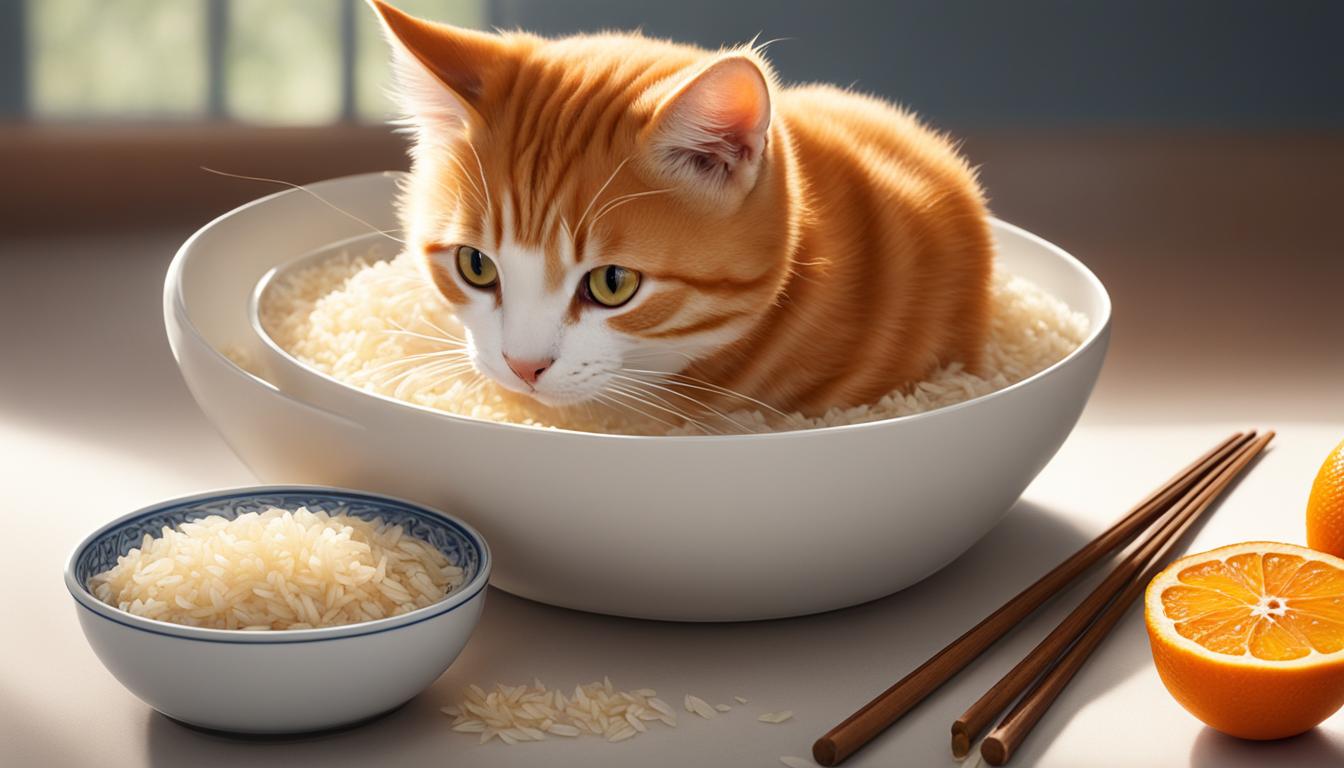If you’ve ever wondered if cats can eat rice, you’re not alone. Rice is a staple food in many cultures, and it’s natural to wonder if it can be a part of your furry friend’s diet. In this article, we’ll explore whether rice is safe for cats, its role in a cat’s diet, the potential health benefits, and the risks associated with feeding rice to cats.
Health Benefits of Rice for Cats
When it comes to feline nutrition, rice can offer some potential health benefits for cats when given in moderation. As a easily digestible carbohydrate source, rice can help soothe an upset stomach or digestive issues in cats. It provides a source of energy and may be particularly beneficial for cats with certain health conditions, such as kidney disease, that require a low-protein diet.
It is important to note, however, that rice should not replace the necessary animal-based proteins in a cat’s diet. Cats are obligate carnivores, meaning their bodies are designed to derive essential nutrients primarily from meat. Therefore, rice should be added as a supplement rather than the main component of their meals.
Cat-Friendly Rice Recipes
If you’re considering incorporating rice into your cat’s diet, it is best to cook it plain without any added spices, oils, or seasonings. A simple recipe that is often well-tolerated by cats is boiled rice mixed with cooked chicken or fish. This provides a balanced meal that includes the necessary animal-based proteins while incorporating rice as a secondary ingredient. Remember to consult with your veterinarian before introducing rice or any new food into your cat’s diet to ensure it is suitable for their specific needs.
| Pros of Feeding Rice to Cats | Cons of Feeding Rice to Cats |
|---|---|
|
|
In conclusion, while rice can be included in a cat’s diet in small amounts, it should not be the main component of their meals. It can provide some health benefits, but it is important to ensure that cats receive the necessary animal-based proteins for optimal nutrition. Feeding rice to cats should always be done in moderation and under the guidance of a veterinarian to ensure it suits their individual needs.
Risks of Feeding Rice to Cats
While rice can be a part of a cat’s diet in moderation, there are some risks to be aware of when feeding rice to your feline friend.
Cats are obligate carnivores, which means their bodies are designed to thrive on a diet primarily consisting of animal-based proteins. Feeding too much rice or making it a significant portion of their meals can lead to nutritional imbalances. Cats require essential nutrients found in meat to maintain their overall health and well-being.
Another risk of feeding rice to cats is the possibility of allergies or intolerances. Just like humans, cats can have individual sensitivities to certain foods, including rice. Some cats may experience digestive upset or even allergic reactions when consuming rice. It’s important to monitor your cat’s response to rice and consult with your veterinarian if you notice any adverse effects.
In conclusion, while rice can be included in a cat’s diet in small amounts, it should not replace the necessary animal-based proteins that cats need. Feeding rice to your cat should always be done in moderation, as part of a balanced diet that includes a variety of protein sources. Remember to consult with your veterinarian to ensure your cat’s diet meets all of their nutritional needs.
FAQ
Can cats eat rice?
Yes, cats can eat rice as part of their diet. However, it should be given in moderation.
Is rice safe for cats?
Rice can be safe for cats if it is cooked plain without any added spices, oils, or seasonings.
Can rice be included in a cat’s diet?
Rice can be included in a cat’s diet in moderation as part of a balanced meal plan.
What are the health benefits of rice for cats?
Rice can provide a source of carbohydrates for cats and may be beneficial for their digestive health. It is easily digestible and can help soothe an upset stomach or digestive issues.
Are there any risks to feeding rice to cats?
Feeding too much rice or making it a significant portion of a cat’s diet can result in nutritional imbalances. Some cats may also be allergic or intolerant to rice, leading to digestive upset or allergic reactions.
How should rice be prepared for cats?
Rice should be cooked plain without any added spices, oils, or seasonings. Simple recipes, such as boiled rice mixed with cooked chicken or fish, can be a cat-friendly option.
Should I consult a veterinarian before feeding rice to my cat?
Yes, it is crucial to consult with a veterinarian before introducing rice or any new food into your cat’s diet to ensure it is suitable for their specific needs.
